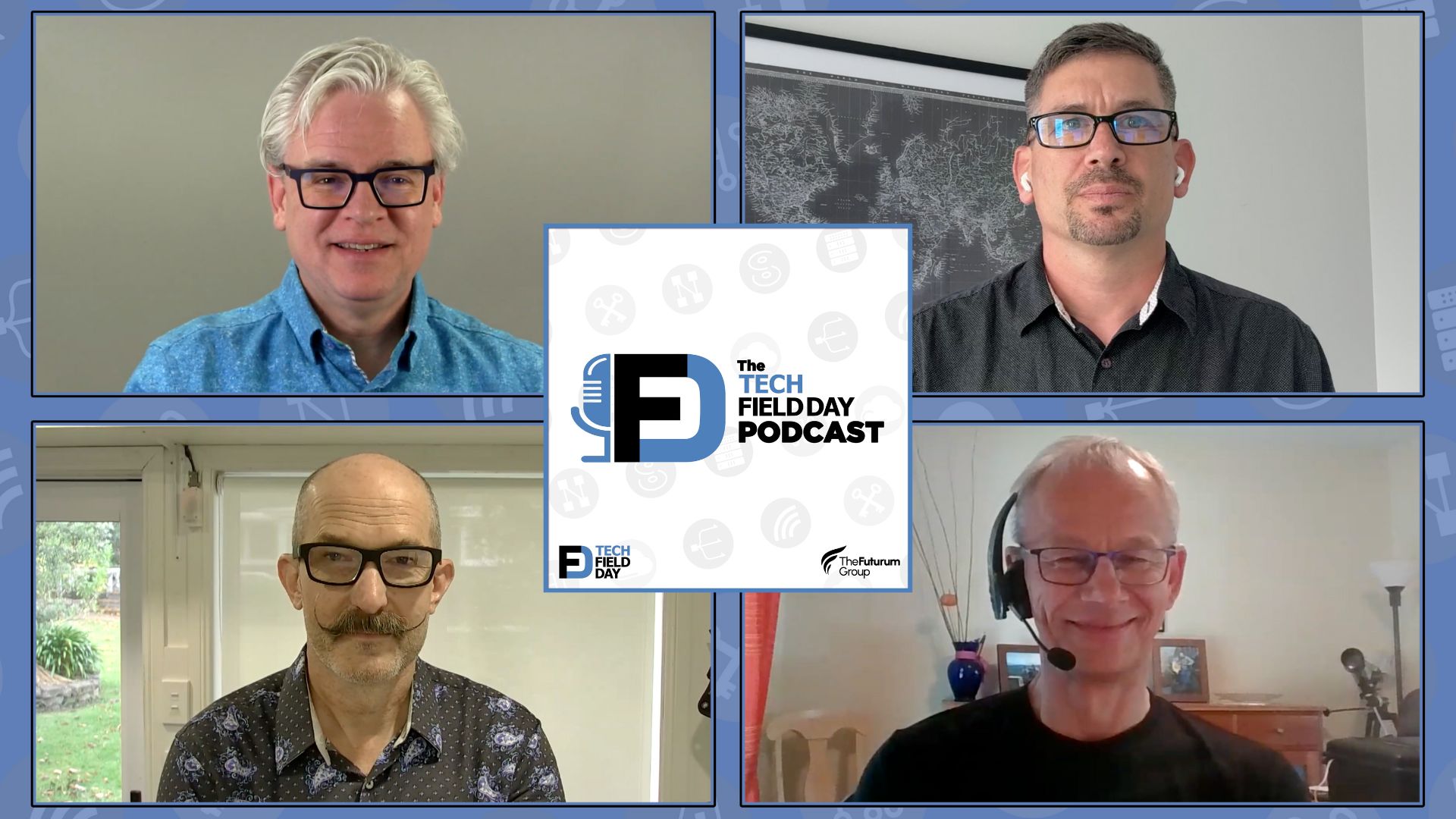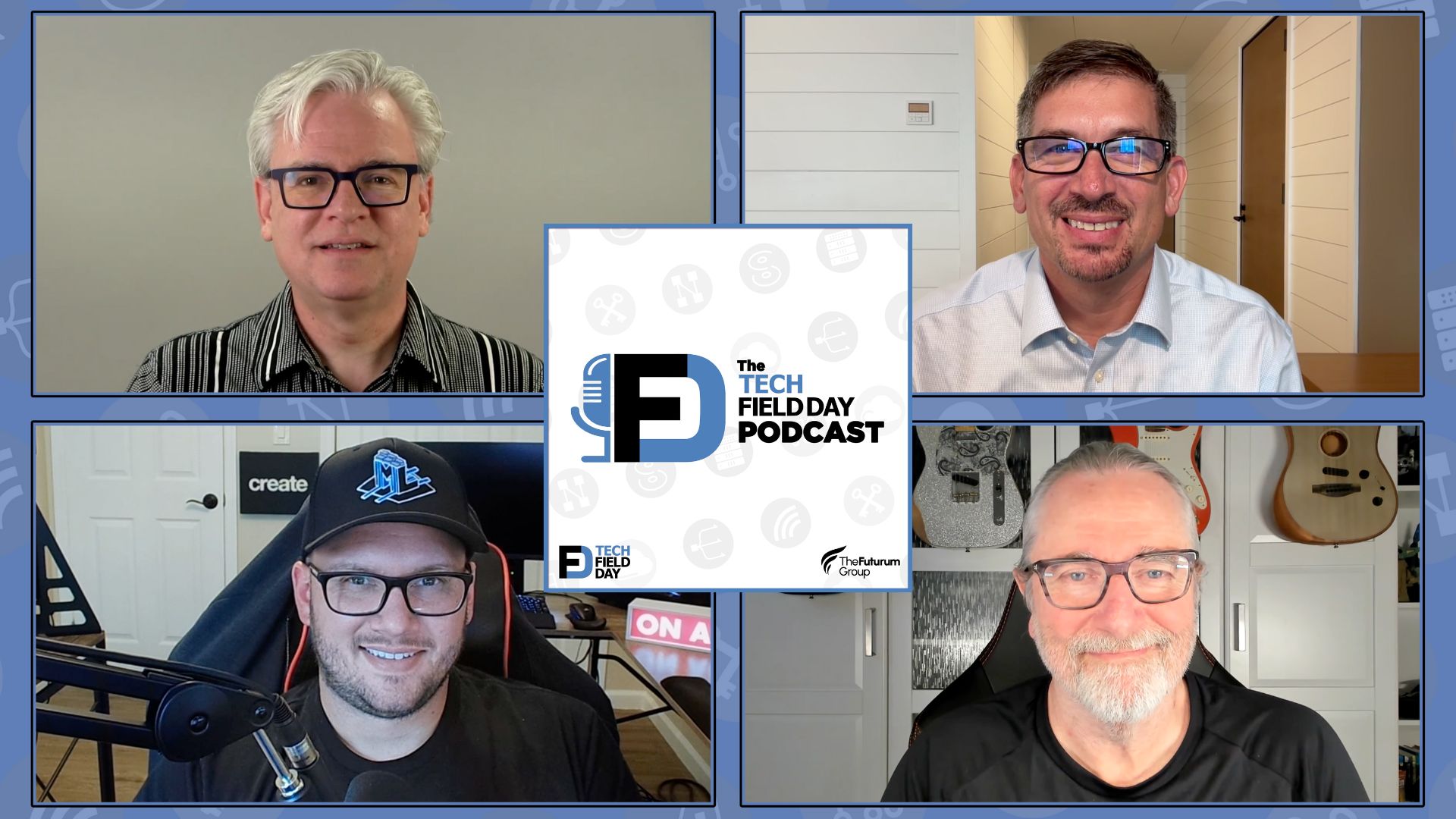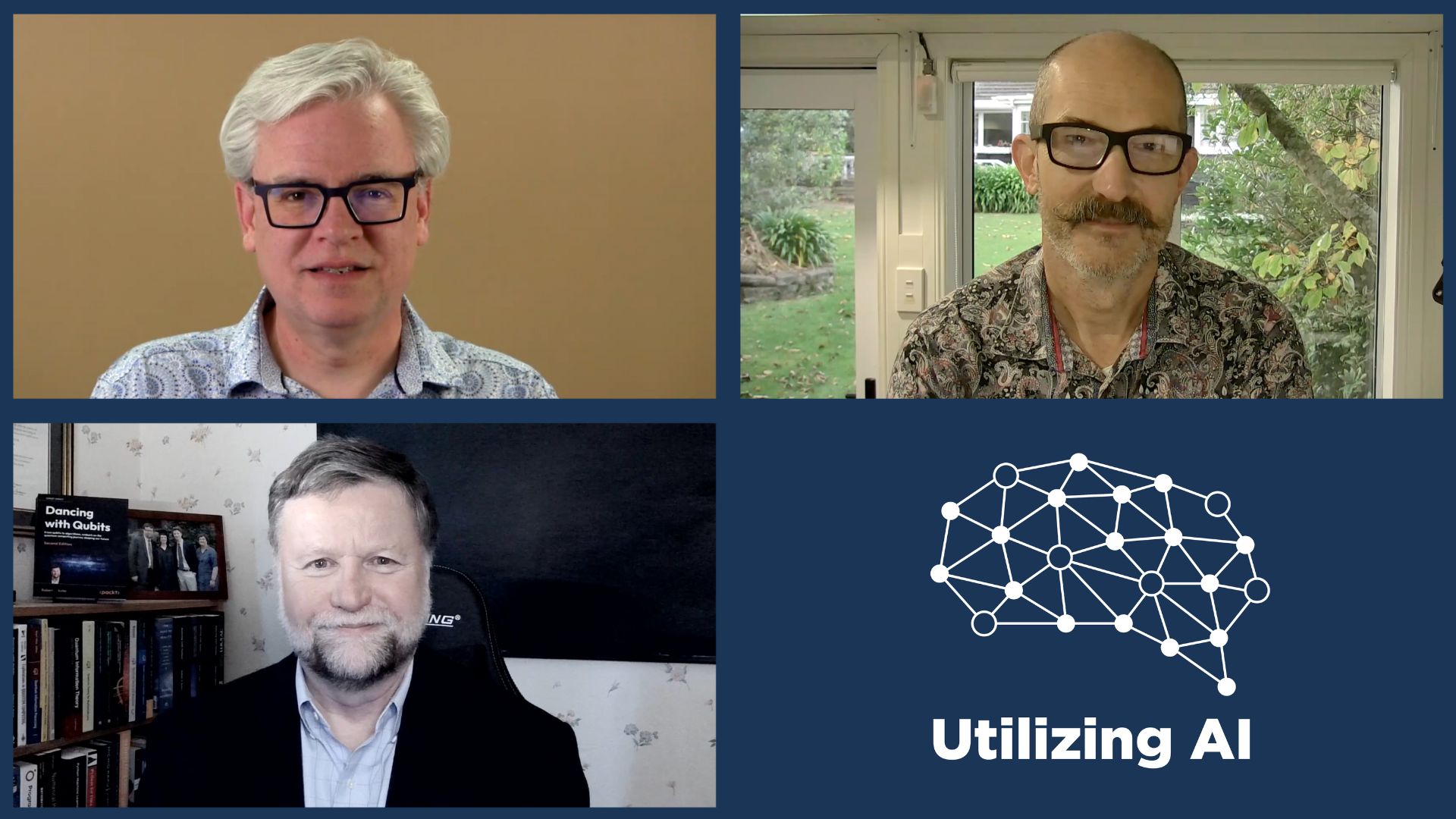AI is accelerating application development and modernization in many ways, but developers are just ramping up their use of the technology. This episode of Utilizing Tech includes Paul Nashawaty, who focuses on application development at The Futurum Group, discussing this topic with Allyson Klein and Stephen Foskett. Use cases for AI include documentation, chatbots, data integration, programming co-pilots, and more. Regardless of how AI is used, organizations must accept that they are ultimately responsible for the products and outputs produced. Accelerating testing and thus the entire DevOps release cycle is one area where AI is making incredible growth. Another popular concept is retrieval-augmented generation (RAG) which brings existing datasets to generative AI to improve results. There is currently a lack of confidence in AI-based solutions and concern about the complexity and level of effort required to bring them to market, so vendors must help make deployment easier and better integrated. Product vendors are addressing this by delivering solutions with partners and popular platforms and frameworks. Open source tools and open data are also helping to move AI technologies forward. Developers want invisible infrastructure and platforms that just work, and the emerging AI PC segment promises more processing power on the desktop. 2024 is shaping up to be the year of AI in application development.
Apple Podcasts | Spotify | Overcast | Audio | UtilizingTech.com
Mainstreaming AI in App Development, with Paul Nashawaty
A smattering of newly launched AI solutions can now write their own computer code. A growing body of IT shops are leaning on these tools to increase developers’ velocity. This will change the world of app development, and unlock a core competitive advantage, experts say.
Stephen Foskett, and cohost for this episode of Utilizing AI Podcast, Allyson Klein, sit down with Paul Nashawaty, Practice Lead of AppDev Modernization at The Futurum Group, to talk about the implications of AI in application development.
AI for Developer Hyperproducitvity
“Modernization is top of mind for every CIO. Whether it’s heritage environments or heritage applications that are moving to cloud or cloud-native and cloud-ready environments, it requires faster movement, to basically modernize,” says Nashawaty.
AI is a stunningly capable technology to accelerate this, provided it is leveraged for the right things. Generative AI solutions can allow people in IT to tap into complex technologies without having to write a single line of computer code. Coding copilots, in particular, can help out in a plethora of ways, from auto-completing code to reviewing and refining the works of experts.
A small percentage of companies have already integrated AI into their application development workflows to reduce time to delivery. “What we see in our research is, even though AI is really in the early stages of assisting these modernization efforts, 18% of organizations are using it in their production applications,” he shares.
The survey indicates that 27% of the responding organizations are tinkering with AI to figure out what tasks it can take on reliably. While this goes to provide an early glimpse of what the technology is capable of, there are significant headwinds facing organizations.
The biggest challenges looming over early adopters are lack of resource – skill shortage, infrastructure pains, and a tool gap. “Even if companies can find people to do the job, it takes about 9 to 12 months to get that team productive to deliver. That’s pretty much outside the window of what they’re looking for,” says Nashawaty.
As much as AI tools can help close that chasm and improve the workflow of developers, they also contribute bugs and errors. When left to generate a net new piece of code on their own, the quality of work isn’t the highest, data shows.
“When I look at it, I think in the context of faster code creation and improving code. These are use cases to look at,” he urges. “Generating documentation is another great use case for AI.”
The errors and slips are hardly surprising considering the data component of AI. “What’s incredibly important is the right calls to make to the data sources. If the information is not presented up correctly, you have issues like hallucinations and incorrect results, or data silos.”
It pays to be selective when choosing data for AI models. But there is also a security aspect to it that is often overlooked. “It’s incredibly important that you don’t commingle your private LLM with public information because then you run the risk of sharing your IP externally, and that could create a whole slew of issues,” warns Nashawaty.
Security is central to AI adoption. A negligent attitude can be a death toll to the business. “The challenge that I see is that security impacts applications really rapidly. If organizations cannot adjust to make changes that quickly, that impacts the business integrity. Whether it’s bug issues, security breaches, or downtime, whatever it may be, the customers are impacted,” he reminds.
Aside from security implications, there are overarching ethical and governance concerns too that are holding back companies. “You want to make sure that you’re in compliance within your organization. So if you’re running checks and balances against your AI, you need to be able to make sure that you’re in compliance,” he emphasizes.
Rapid Code Development
“Development organizations are tasked to do two to three times more work today with half the staff they had just a few years ago. Organizations that are not using automation are going to fall behind,” Nashawaty points out.
In a survey conducted by The Futurum Group, 36% of respondents indicated that they’ve shifted skilled resources away from rote tasks, and are letting AI take care of it.
“Businesses are about accelerating their application release cycles. The CI/CD pipeline is in an infinity loop of moving the applications and making sure you have that agile development process. 24% of respondents in a 378-people survey indicated that their organizations want to release code on an hourly basis. Yet only 8% were able to do so, and part of the reason is that the release cadence has to happen very quickly,” he says.
Coding is not the only way AI can help shorten the development cycle. AI can offload a lot of the repetitive tasks in the development workflow. “Testing is one of those things where if you’re putting in a test harness in an AI solution, it removes those redundant tasks from that cycle. That helps not just putting out the application faster, and improving accuracy, but it also adds to the enjoyment of the developers’ job.”
But, change is a slow and bumpy process, and getting developers into a more AI-centric mindset ultimately from the manual ways will happen differently for businesses, Nashawaty predicts.
“There will always be stages of maturity for organizations where they’re going to take an approach and deliver based on their own needs. But regardless of that, organizations are touching use cases. What AI does is allows it to be faster and more reliable to get it done.”
Nashawaty believes that building solutions that inherently improve confidence in AI would be a step in the right direction in mainstreaming AI in app development.
Historically, solutions that have a lower the adoption curve show a higher rate of uptake. “The big green button that ensures frictionless deployment, and gets DevOps teams to be more productive and get the code out the door faster, will help accelerate businesses’ KPIs and goals,” he says.
Another proven way to defeat challenges of adoption is to partner with peers in the industry. Effective collaborations enable companies to pool their resources and collectively avail more support. The pivot towards open-source AI speaks to the benefits of this. Open-source models are driving advancements in AI helping companies roll out turnkey solution that integrate widely with the ecosystem. Google’s open-source AI model, Gemma, which they presented at the AI Field Day event in is a good example of that.
Wrapping Up
AI technologies may not be as the silver bullet for complex coding jobs, but they can very well be the strategic solution to overcome a lot of the usual coding challenges and boost developers’ productivity for faster release cycles. To quote Nashawaty, “AI can be the enabler of the really fast goals of app development organizations, but it is not the end goal.”
The Futurtum Group website features many research briefs and notes on AI applications which are accessible to the readers.
Listen to this episode of Utilizing AI Podcast on your favorite podcast platform, and keep your eyes peeling for the upcoming season, launching soon.
Podcast Information
Stephen Foskett is the Organizer of the Tech Field Day Event Series, now part of The Futurum Group. Connect with Stephen on LinkedIn or on X/Twitter.
Allyson Klein, Global Marketing and Communications Leader and Founder of The Tech Arena. You can connect with Allyson on Twitter or LinkedIn. Find out more information on the Tech Arena website.
Paul Nashawaty is a Practice Lead focused on Application Development Modernization at The Futurum Group. You can connect with Paul on LinkedIn and learn more about his research and analysis on The Futurum Group’s website.
Thank you for listening to Utilizing AI, part of the Utilizing Tech podcast series. If you enjoyed this discussion, please subscribe in your favorite podcast application and consider leaving us a rating and a nice review on Apple Podcasts or Spotify. This podcast was brought to you by Tech Field Day, now part of The Futurum Group. For show notes and more episodes, head to our dedicated Utilizing Tech Website or find us on X/Twitter and Mastodon at Utilizing Tech.




